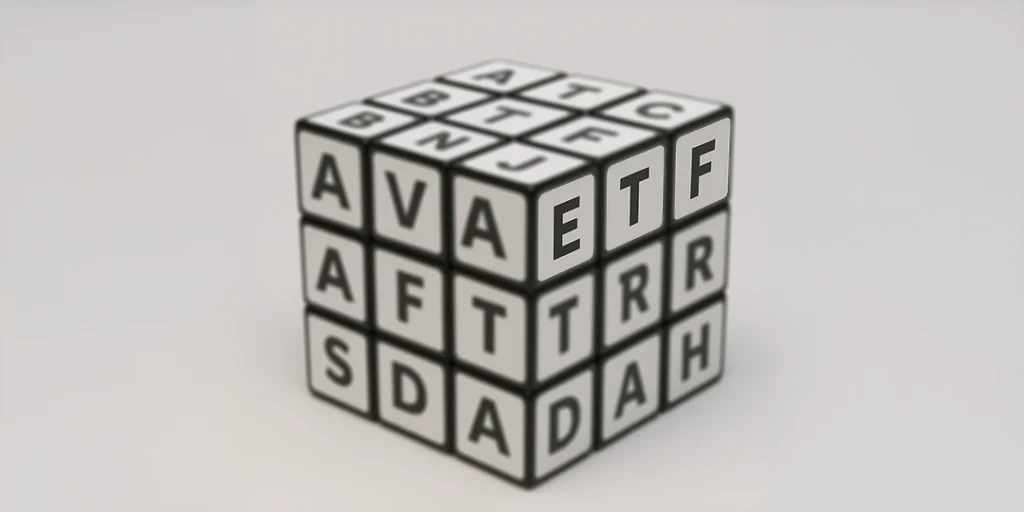An Exchange-Traded Fund (ETF) is a basket of investments: stocks, bonds, commodities, or, in this case, cryptocurrencies like altcoins. Think of it as a mutual fund, but unlike mutual funds (which trade only once per day), ETFs trade on stock exchanges like individual stocks, with prices fluctuating throughout the day based on supply and demand.
Key characteristics of ETFs:
Diversification: ETFs hold multiple assets, providing instant exposure to a specific market or sector. For altcoins, this could mean a single ETF containing a basket of different altcoins.
Liquidity: ETFs can be bought and sold easily during market hours.
Transparency: Most ETFs disclose their holdings daily, so investors know exactly what assets they own.
Lower fees: ETFs typically have lower expense ratios than actively managed mutual funds.
Accessibility: Investors can trade ETFs through standard brokerage accounts, making them widely accessible.
How are ETFs used for altcoin trading?
The use of ETFs for altcoin trading is still emerging. Here’s how they currently function and how they might evolve:
Current situation (May 15, 2025):
Limited availability: Few spot altcoin ETFs exist today. The SOL ETF in Canada is currently the only fully approved and listed spot ETF for a specific altcoin.
Bitcoin and Ethereum ETFs: Several regions (including the U.S., Canada, Europe, and parts of Asia) have approved spot ETFs for Bitcoin (BTC) and Ethereum (ETH), setting a precedent for altcoin ETFs.
Indirect exposure: Some cryptocurrency ETFs or Exchange-Traded Notes (ETNs) in Europe offer exposure to a basket of cryptocurrencies excluding Bitcoin and Ethereum, providing indirect altcoin access.
How altcoin ETFs are expected to work (if approved more widely):
If more spot altcoin ETFs gain regulatory approval, they will likely function similarly to Bitcoin and Ethereum ETFs:
Price tracking: The ETF will track the price of one or more altcoins (e.g., a Solana ETF tracking SOL).
Holding underlying assets (Spot ETFs): A spot altcoin ETF will physically hold the altcoins in secure custody.
Trading on stock exchanges: Shares of the ETF will be listed on major exchanges (e.g., Nasdaq or NYSE), tradable like stocks.
Brokerage access: Investors can buy and sell shares through existing brokerage accounts without needing crypto exchanges or wallets.
Benefits of altcoin ETFs for trading:
Simplified access: ETFs eliminate the need to manage private keys or use crypto exchanges.
Regulation and security: ETFs operate under financial regulations, offering more oversight than direct altcoin investments.
Liquidity: ETFs on major exchanges may be more liquid than some altcoins.
Institutional appeal: ETFs could attract institutional investors and financial advisors.
Potential tax advantages: Some jurisdictions may offer favorable tax treatment for ETFs over direct crypto holdings.
Important considerations:
Volatility: Altcoin ETFs will likely remain highly volatile.
Underlying liquidity: The liquidity of the altcoins held by the ETF affects its efficiency.
Fees: Management fees will apply and vary by provider.
Regulatory risks: Crypto regulations are evolving and could impact altcoin ETFs.
What’s in store
While altcoin ETFs are still in early stages, the approval of Bitcoin and Ethereum ETFs provides a roadmap for their potential growth. By offering regulated, liquid, and accessible exposure to altcoins, ETFs could bridge traditional finance and the cryptocurrency market.
Global ETF flows are projected to reach $2 trillion by the end of 2025, driven by surging demand for active management, specialized fixed-income products, and innovative themes like AI and digital assets, according to @StateStreet’s latest ETF Impact Report.
— etf.com (@etfcom) May 14, 2025
🔗 Read now:… pic.twitter.com/2VIKi51CXP








